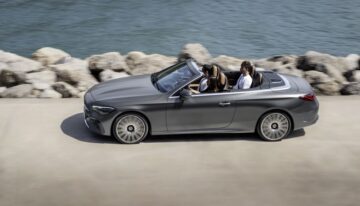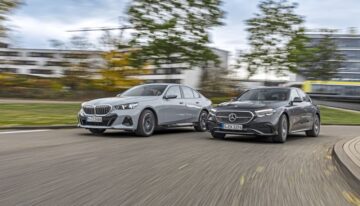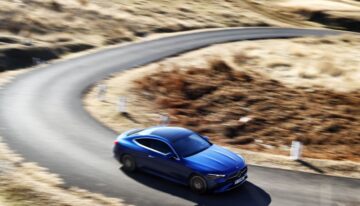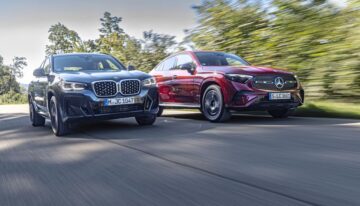The U.S. Environmental Protection Agency established the range figures for the Mercedes EQS. As expected, they are lower than the official range that the premium carmaker provided.
Carmakers test the electric range of their zero-emission vehicles in near-perfect conditions. It is therefore only normal for the figures to be ideal. Yet in real traffic conditions, they turn out to be lower or much lower than the official numbers.
The Mercedes EQS is impressive in every way. It comes with futuristic design and out-of-this-world technology, while the price slots below the one of the S-Class luxury sedan. The electric car comes with an official WLTP range of 781 kilometers (approximately 485 miles). American customers were looking forward to hearing the EPA figures. And here they are.
The Mercedes EQS 450+ is the entry-level variant. It sports a single electric motor on the rear axle, rear-wheel drive, and a range of 350 miles (563 kilometers). The car boasts 334 PS and 568 Nm of torque.
Upper in the range there is the EQS 580 4MATIC, with two electric motors, which stops at 340 miles (about 547 kilometers). 523 PS and 856 Nm of torque take it from a standstill to 100 km/h (62 mph) in just 4.1 seconds.
The variants both got the 108-kWh battery for energy storage.
Mercedes EQS – mission accomplished with the EPA rating
Despite the fact that the EPA numbers are much lower than those in the WLTP test cycle, it is mission accomplished for the Germans.. They thus win the range race against the main rivals of their electric car. The Porsche Taycan stops at 227 miles, while the Audi e-tron GT only goes as far as 238 miles between charges.
It remains to be seen what BMW has got up its sleeve to throw in this fight. Meanwhile, the Tesla Model S is still far ahead with a 405-mile range (approximately 652 kilometers).













